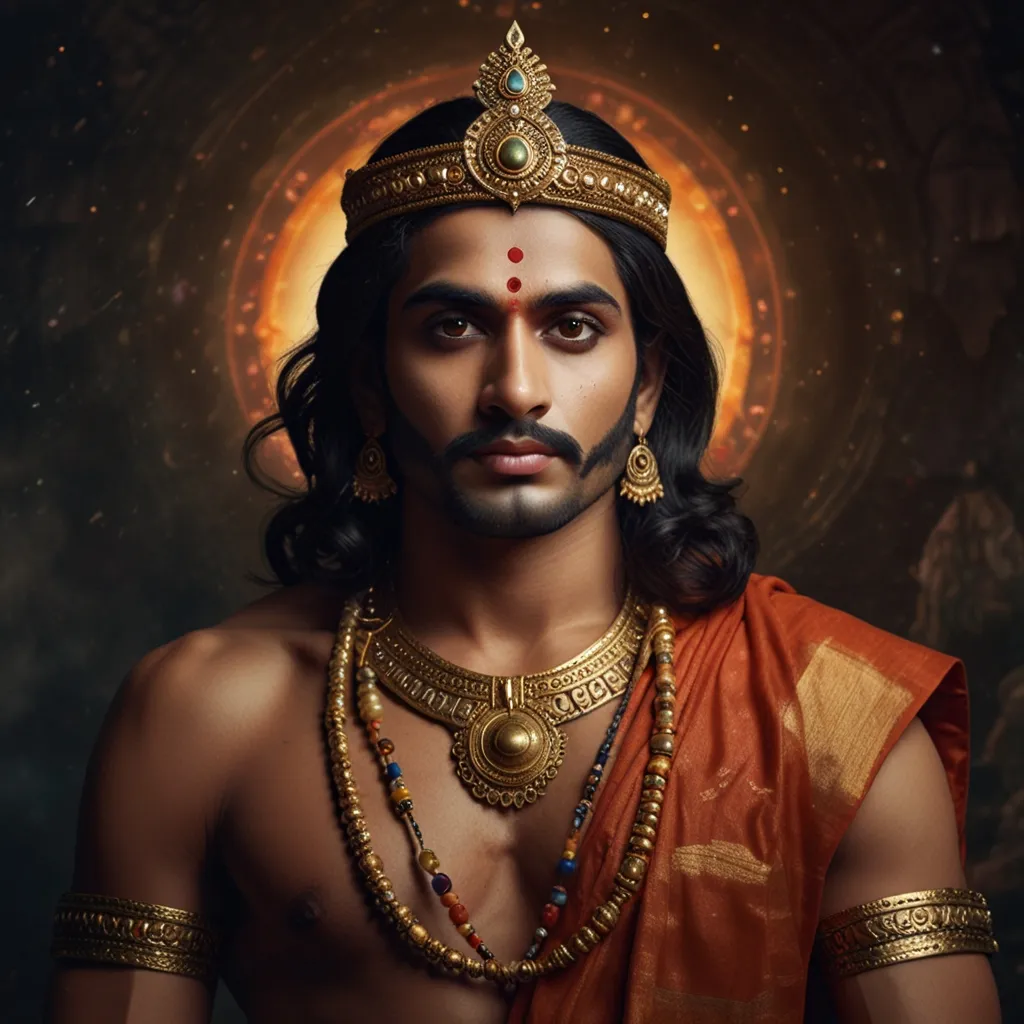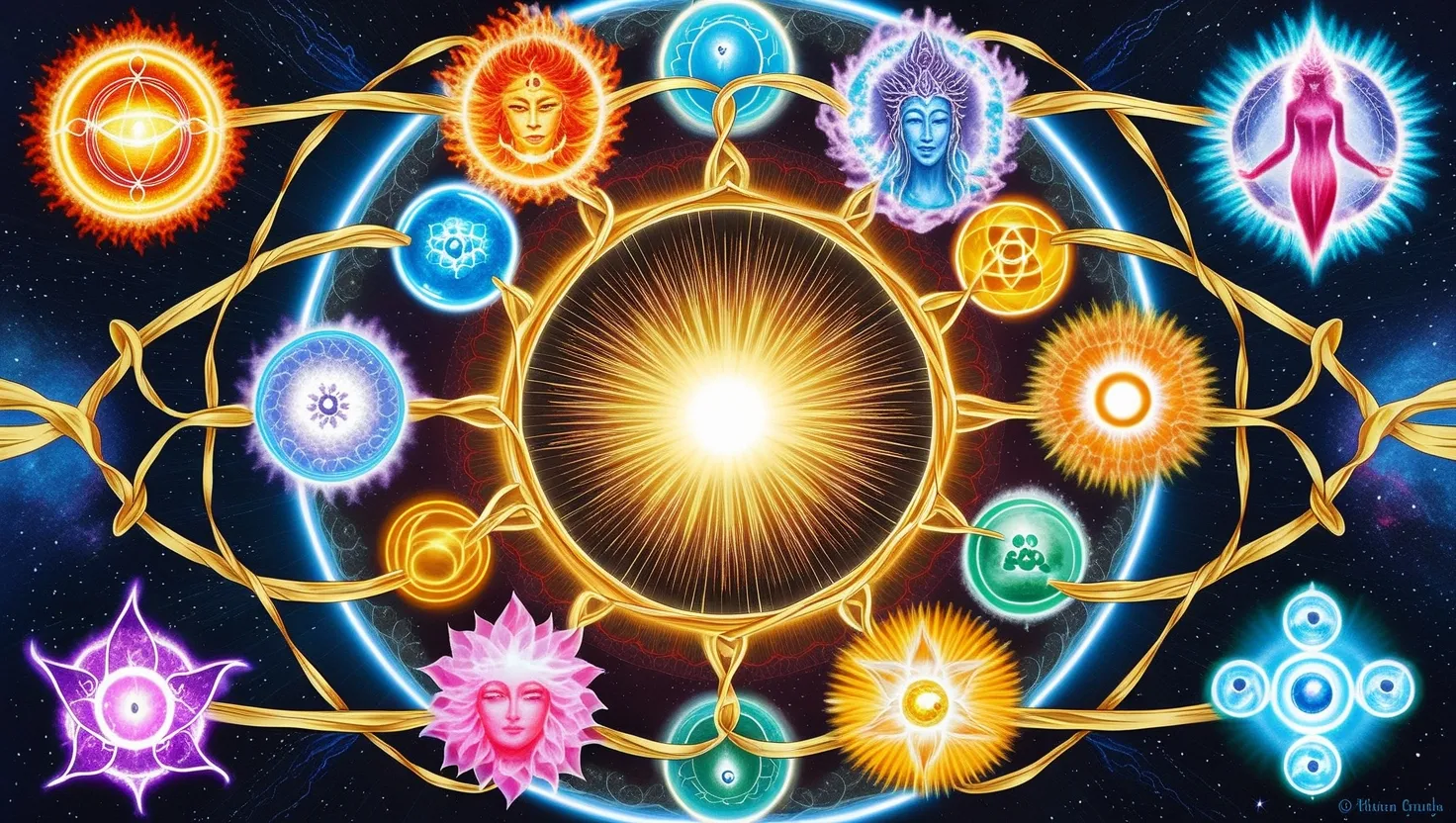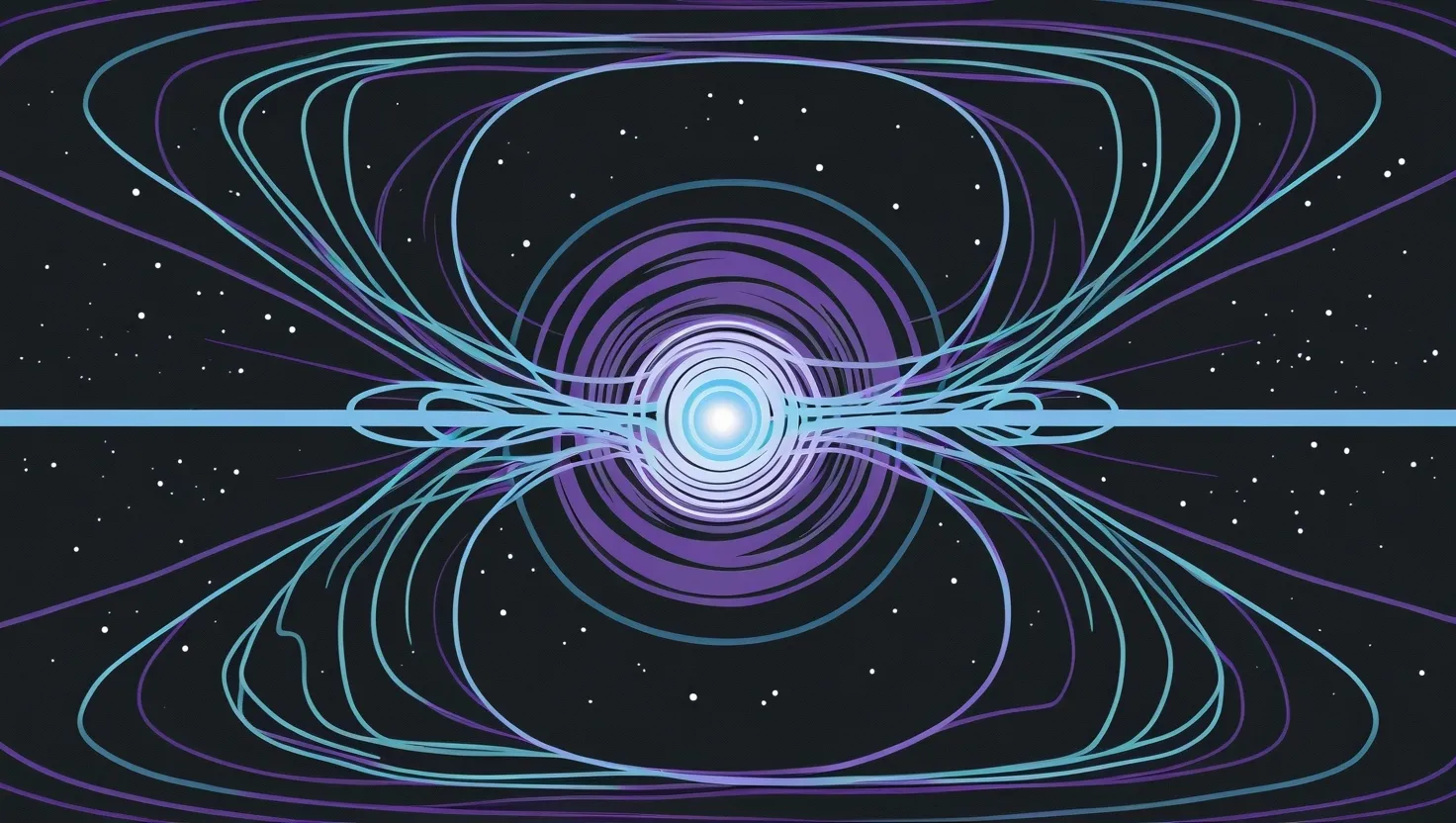“Mahabharata,” an epic that’s more dramatic than any soap opera, presents a vivid tapestry of stories that continue to captivate us. One character, Vidura, stands out not just for his moral compass but for his peculiar, almost celestial origins.
Vidura’s entry into the world was marked by a series of dramatic episodes. It all started with King Vichitravirya of Hastinapura, who had two wives, Ambika and Ambalika. These princesses of Kasi were kidnapped by Bhishma to marry Vichitravirya. But there’s a twist — Vichitravirya had a fatal flaw; he was consumed by his addiction to alcohol. This, ultimately, led to his death.
Vichitravirya’s sudden demise left his mother, Satyavati, in deep sorrow. She was distressed, fearing the extinction of the Kuru lineage. Bhishma, bound by his vow of celibacy, couldn’t step in to father children. So, Satyavati turned to her other son, Vyasa — a sage with immense wisdom and divine powers. She banked on Vyasa to carry forward the dynasty through an old tradition known as Niyoga, a practice where a designated man fathers children with a widow.
First up was Queen Ambika, but she was terrified by Vyasa’s appearance. His dark skin and wild hair scared her so much that she kept her eyes closed during their encounter. The result? A blind son named Dhritarashtra. Following her, Queen Ambalika didn’t fare much better. Her terror turned her pale, and her child, Pandu, was born with a pale complexion.
Satyavati wasn’t pleased with the turn of events and requested Vyasa to try again. This time, Ambika, still horrified by her previous encounter, sent her maid instead. Unlike the queens, the maid wasn’t afraid and met Vyasa with respect and kindness. This time, the result was a normal, exceptionally wise son — Vidura.
Vidura’s birth wasn’t just about genetics or earthly events; it was interwoven with divine intervention. Here’s the backstory — Sage Mandavya was wrongfully punished, impaled on a trident due to a crime he didn’t commit. Incensed, he cursed Yamaraja, the god of death, forcing him to be born as a maid’s son. Thus, Vidura was essentially Yamaraja reborn, having a side gig to fulfill the curse.
Despite his unconventional start, Vidura came into his own as an extraordinarily wise and just man. His wisdom became legendary across Bharatvarsha. Raised in Hastinapura, he soaked up knowledge from the Vedas, Shastras, Puranas, and Itihasas. Alongside academics, he dived into martial arts, always holding righteousness over mere combat prowess.
In time, Vidura grew to be the prime minister of the Kuru kingdom, famed for his fair judgments and unwavering adherence to dharma (righteousness). His role mostly involved counseling his brothers, Dhritarashtra and Pandu, with pearls of wisdom. Unfortunately, his sound advice often went unheeded, especially by Dhritarashtra and his devious son Duryodhana.
Vidura’s wisdom was like a lighthouse during the stormy events of the Mahabharata. He saw the dark clouds looming over the Kauravas long before the tempest hit, continually warning them to mend their ways. But alas, his words fell on deaf ears. Nevertheless, he stayed close to the Pandavas, guiding them with his timeless wisdom and keeping them aligned with righteousness.
Vidura’s unyielding dedication to dharma was his defining trait. As chaos and deceit engulfed the world around him, he remained resolute. His life story is a masterclass in living a life governed by wisdom and morality. His legacy is more relevant than ever, serving as a beacon reminding us of the importance of virtue over vice.
In essence, Vidura’s tale isn’t just folklore but a powerful precedent that greatness isn’t about one’s lineage or status. It’s about actions, choices, and an unwavering commitment to doing what’s right. His journey, filled with sage counsel and righteous deeds, continues to inspire, urging us towards a life guided by wisdom and virtue.






